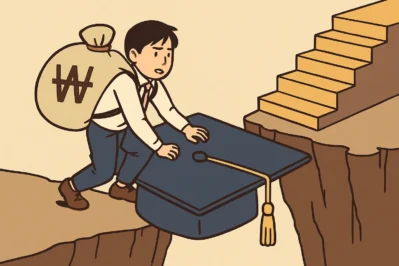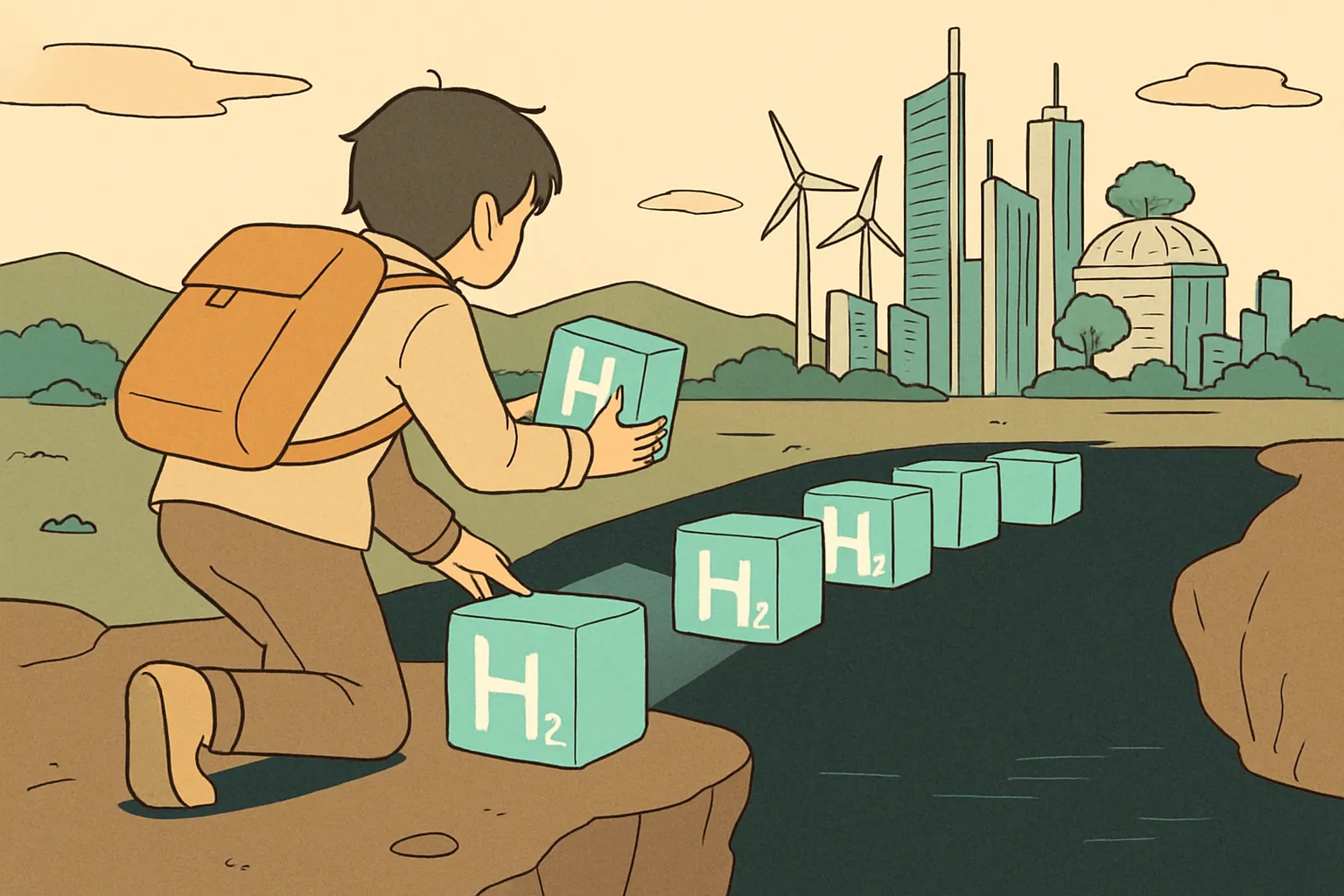The Ivory Tower’s Price Tag: Debating Korea’s Student Debt Crisis
Hello! Welcome back to [Maeil Hangeul], the space designed to elevate your Korean proficiency to the highest level.
Today, we are moving beyond everyday conversation to tackle a sophisticated and critical socio-economic issue currently at the forefront of public discourse in Korea: the intense debate surrounding university tuition hikes and the escalating student debt crisis. Lately in Korea, discussions about lifting the long-standing tuition freeze have ignited passionate arguments in the news and on social media. Understanding the nuanced language used in these debates is essential for anyone wishing to grasp the complexities of modern Korean society and engage in high-level discussions. Are you ready to dive deep?
Core Expressions for the Debate
Here are five key expressions you absolutely need to know to understand and participate in this conversation.
1. 등록금 동결 (deung-nok-geum dong-gyeol)
* Pronunciation: [deung-nok-kkeum dong-gyeol]
* English Meaning: Tuition Freeze
* Detailed Explanation: This term refers to the policy of freezing university tuition fees at their current rate, preventing them from increasing. For over a decade, the Korean government has incentivized universities to freeze tuition to lessen the financial burden on students. However, universities argue that this policy has led to financial difficulties and a decline in educational quality. This phrase is the central keyword in the entire debate.
2. 학자금 대출 (hak-ja-geum dae-chul)
* Pronunciation: [hak-jja-geum dae-chul]
* English Meaning: Student Loan (lit. “school-fund loan”)
* Detailed Explanation: While the literal translation is straightforward, this term carries significant social weight. It’s associated with the immense pressure young Koreans face. A specific type you’ll often hear is 취업 후 상환 학자금 대출 (chwi-eop hu sang-hwan hak-ja-geum dae-chul), which is an income-contingent loan that students begin to repay only after they secure employment. The rising balance of these loans is a major indicator of the youth debt crisis.
3. 부담이 학생에게 전가되다 (bu-dam-i hak-saeng-e-ge jeon-ga-doe-da)
* Pronunciation: [bu-dam-i hak-ssaeng-e-ge jeon-ga-dwe-da]
* English Meaning: The burden is passed on/shifted to the student.
* Detailed Explanation: This is a sophisticated passive-voice expression crucial for formal arguments. 전가하다 means to shift responsibility or a burden onto someone else. The passive form, 전가되다, is used to argue that the financial difficulties of universities or the costs of inflation are being unfairly transferred to students in the form of higher tuition. It’s a powerful phrase to express cause and effect in social criticism.
4. 교육의 공공성 (gyo-yuk-ui gong-gong-seong)
* Pronunciation: [gyo-yug-ui gong-gong-sseong]
* English Meaning: The public nature of education; education as a public good.
* Detailed Explanation: This is a conceptual term that frames education not as a private commodity but as a fundamental right and a social responsibility. Proponents of maintaining the tuition freeze or increasing government funding often use this phrase. They argue that raising tuition fees undermines the 공공성 of education by making it accessible only to the wealthy, thereby treating it like a market product.
5. 양극화 심화 (yang-geuk-hwa sim-hwa)
* Pronunciation: [yang-geuk-hwa sim-hwa]
* English Meaning: Deepening polarization.
* Detailed Explanation: This term is ubiquitous in Korean social commentary. 양극화 refers to the widening gap between two extremes (e.g., the rich and the poor), and 심화 means “deepening” or “intensification.” In this context, it is used to warn that tuition hikes could lead to a 교육 기회의 양극화 심화 (deepening polarization of educational opportunities), where one’s economic background dictates their access to higher education, thus reinforcing social stratification.
Sample Dialogue: A News Debate
Let’s see how these expressions are used in a realistic discussion between two commentators, A and B.
A: 최근 대학들이 재정난을 호소하며 등록금 동결 정책의 폐지를 주장하고 있습니다. 어떻게 보십니까?
(Recently, universities have been complaining of financial difficulties and demanding an end to the tuition freeze policy. What are your thoughts?)
B: 물론 대학의 입장도 이해는 갑니다만, 성급한 등록금 인상은 결국 그 부담이 학생에게 고스란히 전가되는 결과를 낳을 것입니다. 이미 수많은 학생들이 학자금 대출로 고통받고 있습니다.
(Of course, I understand the universities’ position, but a hasty tuition hike will ultimately result in the burden being passed entirely onto the students. Countless students are already suffering from student loans.)
A: 하지만 14년째 이어진 동결로 인해 교육의 질이 하락한다는 지적도 있습니다.
(However, there are also criticisms that the quality of education is declining due to the 14-year-long freeze.)
B: 그 문제는 정부의 재정 지원 확대를 통해 해결해야 합니다. 교육의 공공성을 훼손하면서까지 등록금을 인상한다면, 결국 교육 기회의 양극화 심화로 이어져 장기적으로 더 큰 사회적 비용을 초래할 것입니다.
(That issue should be resolved by expanding the government’s financial support. If we raise tuition to the point of damaging the public nature of education, it will lead to a deepening polarization of educational opportunities, causing greater social costs in the long run.)
Cultural Tip & Trend Deep Dive
This debate is deeply intertwined with the infamous 수저계급론 (spoon class theory) in Korea. The theory posits that one’s success is determined not by effort but by the wealth of one’s parents (born with a “gold spoon” or a “dirt spoon”). The fear is that rising tuition will make university a luxury only “gold spoons” can afford, cementing this social hierarchy.
You’ll see this theme constantly reflected in Korean dramas. Characters are often depicted working multiple grueling part-time jobs (알바) just to cover their tuition and living expenses, highlighting the immense pressure. When you hear a news anchor mention “청년 부채 문제” (the youth debt problem), know that student loans are a massive component of that conversation. Mastering today’s vocabulary will not only allow you to read newspaper editorials on the topic but also to understand the underlying social anxieties portrayed in Korean media.
Wrap-up and Practice
Today, we explored the complex vocabulary and concepts surrounding Korea’s university tuition debate. By understanding terms like 등록금 동결, 학자금 대출, 부담 전가, 교육의 공공성, and 양극화 심화, you can now engage with this critical social issue at a much deeper level.
Now, it’s your turn to practice!
- Fill in the blanks:
정부는 ________을 지키고 ________를 막기 위해 대학 등록금 인상을 억제해왔다.
(The government has suppressed university tuition hikes in order to protect the ________ and prevent ________.)
(Answers: 교육의 공공성, 양극화 심화) -
Short Response:
Using the expression ‘부담이 ~에게 전가되다’, write one sentence expressing your opinion on who should bear the cost of rising education expenses (e.g., the government, the universities, or the students).
What are the debates around university tuition like in your country? Share your thoughts in the comments using the advanced expressions we learned today! We’d love to hear your perspective.






